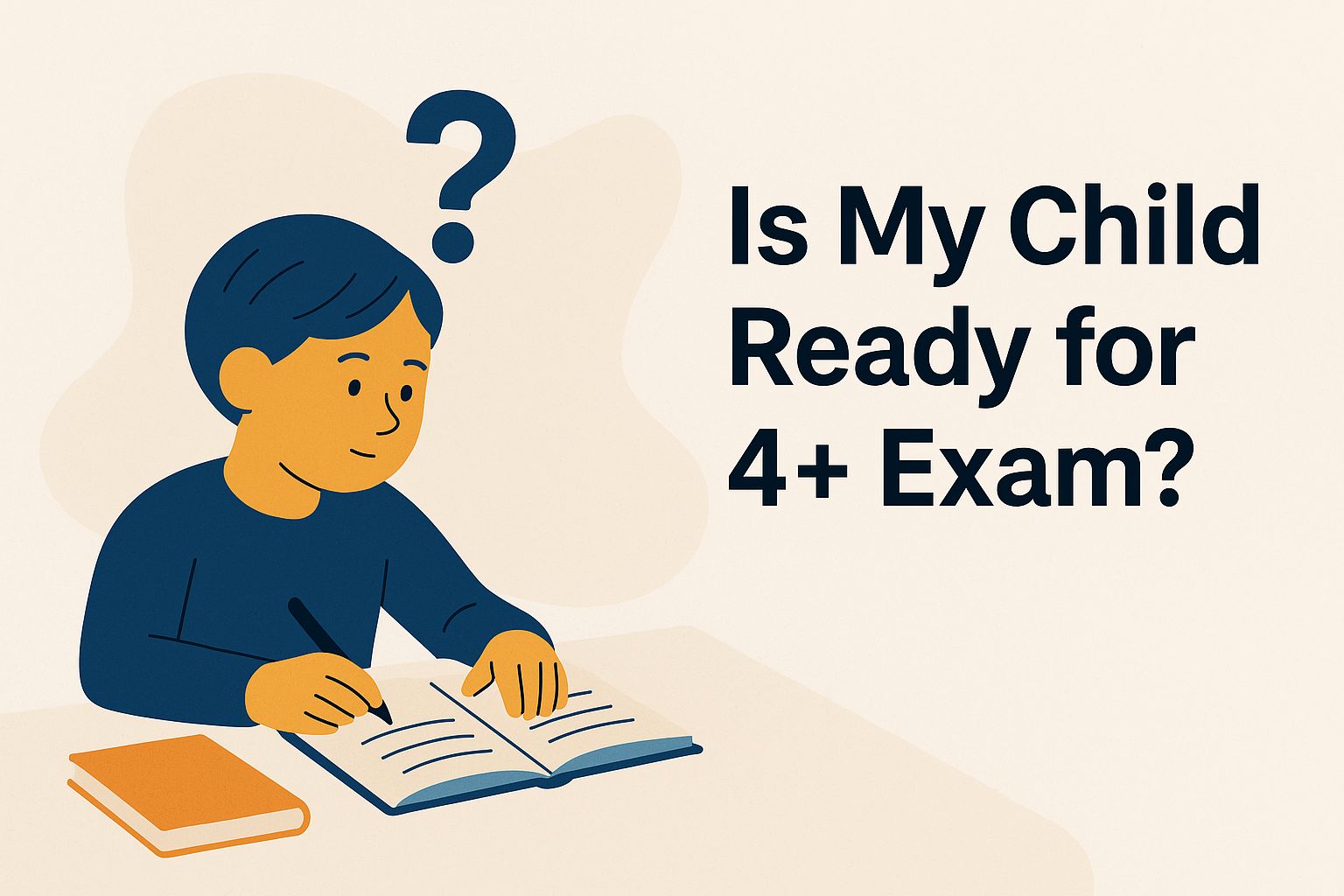
Is My Child Ready for 4+ Exam?
As your little one approaches the age of four, the question looms: Is my child ready for 4+ exam? This pivotal milestone can stir up a mix of excitement and anxiety for both kids and parents alike. Understanding what the exam entails and the signs of readiness is key. From cognitive skills to emotional preparedness, we’ll delve into the essential indicators and how to prepare your child for this important step. Let’s explore together!
Purpose of the 4+ Exam
The primary purpose of the 4+ Exam is to evaluate the essential skills required for academic success, ensuring that children are developmentally prepared for school. This exam assesses readiness in critical areas such as literacy, numeracy, and social skills, all of which are vital for a smooth transition to primary school. If you’re curious about how the 4+ Exam fits into the broader context of entrance exams, including the 11 Plus, discover more about the 4+ Entrance Exams.
For instance, children may be asked to identify letters and numbers, follow simple instructions, and demonstrate appropriate interactions with their peers. To help children master these skills, carers can incorporate interactive activities at home, such as:
- Reading together
- Engaging in counting games
- Organising playdates that encourage socialisation
These practices lay a solid foundation, giving children the power to children to perform confidently during the exam and as they progress in their educational journey.
Importance of Readiness
Readiness plays a vital role in shaping a child’s confidence and ability to adapt to a school environment, ultimately leading to improved educational outcomes.
Research has shown that children who receive assessments and support in readiness skills tend to achieve significantly higher academic performance. For instance, one study revealed that students who participated in readiness assessments prior to entering reception scored 20% higher on standardised tests by the time they reached Year 3.
Implementing programmes that focus on these skills, such as pre-reception readiness assessments and informational workshops for parents, has proven effective in enhancing children’s preparedness.
Additionally, tools like the Teaching Strategies GOLD assessment framework assist educators in monitoring and nurturing these essential skills throughout early childhood, ensuring a solid foundation for lifelong learning.
Understanding the 4+ Exam
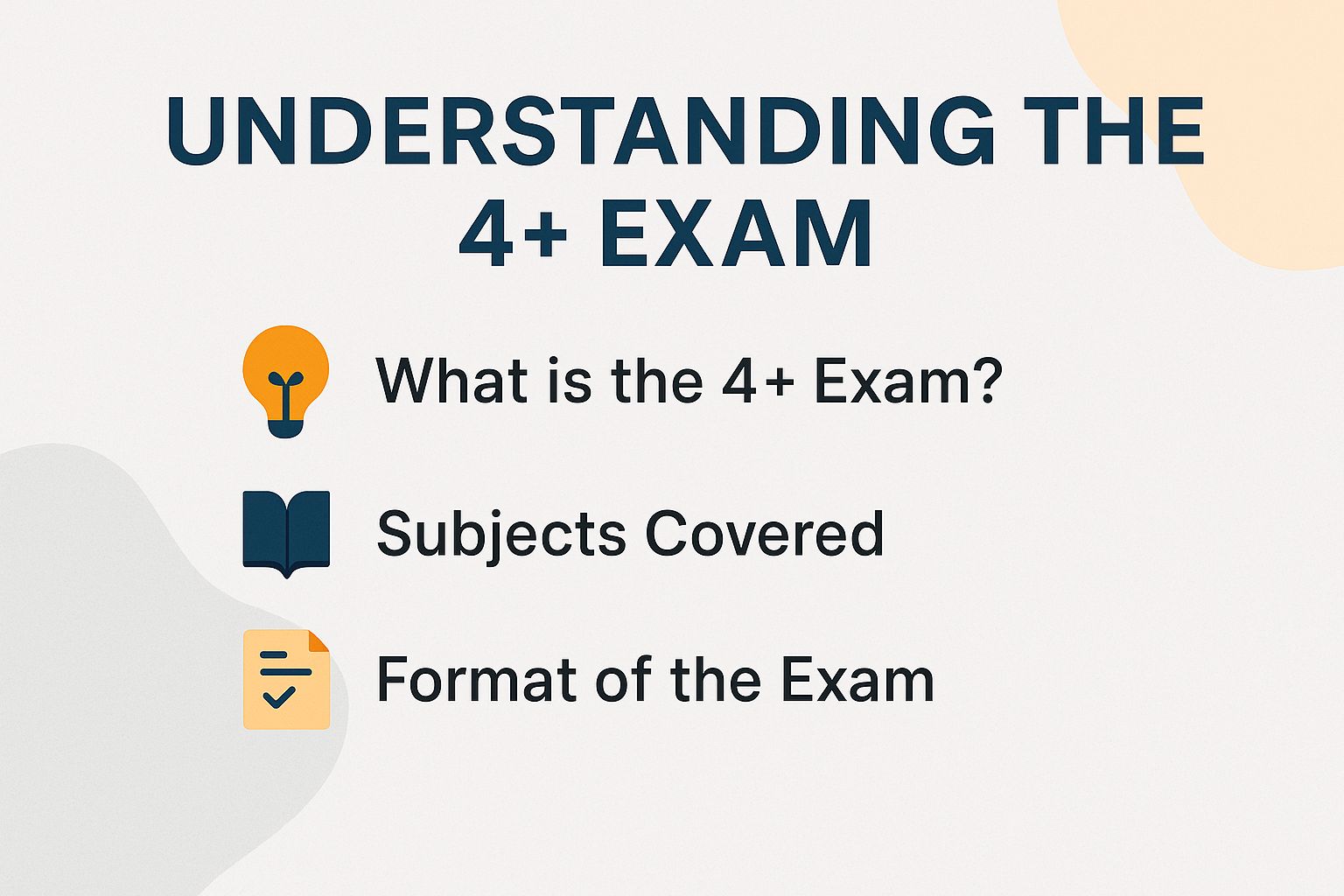
It is important for parents to understand the structure of the 4+ Exam in order to effectively prepare their children and support them throughout their learning journey. For comprehensive guidance on navigating these exams, see also our detailed overview of the 4+ Entrance Exams to empower parents with the necessary tools for success.
What is the 4+ Exam?
The 4+ Exam is a standardised assessment designed to evaluate children on various developmental milestones, particularly focusing on literacy and numeracy skills. This exam plays an essential role in identifying areas where children may require additional support or enrichment.
Typically, it consists of sections that assess phonemic awareness, letter recognition, counting, and basic addition.
It is important to note that each state may implement variations in how the exam is administered. For example, California mandates a portfolio assessment to accompany the exam results.
Both educators and parents can contribute to a child’s preparation by engaging them in activities that enhance these critical skills. Storytime can be particularly beneficial for developing literacy, while interactive counting games can effectively support numeracy.
Such activities promote well-rounded development that aligns with the expectations of the exam.
Subjects Covered
The exam encompasses essential subjects, including literacy skills, numeracy skills, and social-emotional learning, ensuring a comprehensive assessment of each child’s abilities.
In the realm of literacy skills, children are evaluated on their reading comprehension through a variety of texts, which may require them to summarise information or answer questions based on what they have read.
Regarding numeracy skills, the assessment often focuses on basic addition and subtraction, presented in real-world contexts, such as counting items like apples in a basket.
For social-emotional learning, assessments frequently include activities such as role-playing to gauge children’s skills in conflict resolution and teamwork.
To support this process, educators can employ tools like anecdotal records or checklists to monitor children’s progress in these areas, ultimately fostering a nurturing and well-rounded learning environment.
Format of the Exam
The format of the 4+ Exam typically encompasses multiple-choice questions, short response items, and practical assessments, all designed to evaluate a range of skill levels. The exam is structured to be completed within a 120-minute timeframe, providing sufficient time to address each section thoroughly.
Multiple-choice questions focus on foundational knowledge, while short responses require students to engage in critical thinking and articulate their understanding of concepts. Practical assessments, which often include hands-on tasks or projects, are aimed at evaluating real-world application skills.
In terms of preparation, parents can support their children by simulating exam conditions at home. Utilising past papers can help familiarise them with the types of questions they may encounter and improve their time management strategies.
Additionally, tools such as Quizlet for flashcards or various practice apps can effectively enhance their study sessions.
Key Readiness Indicators
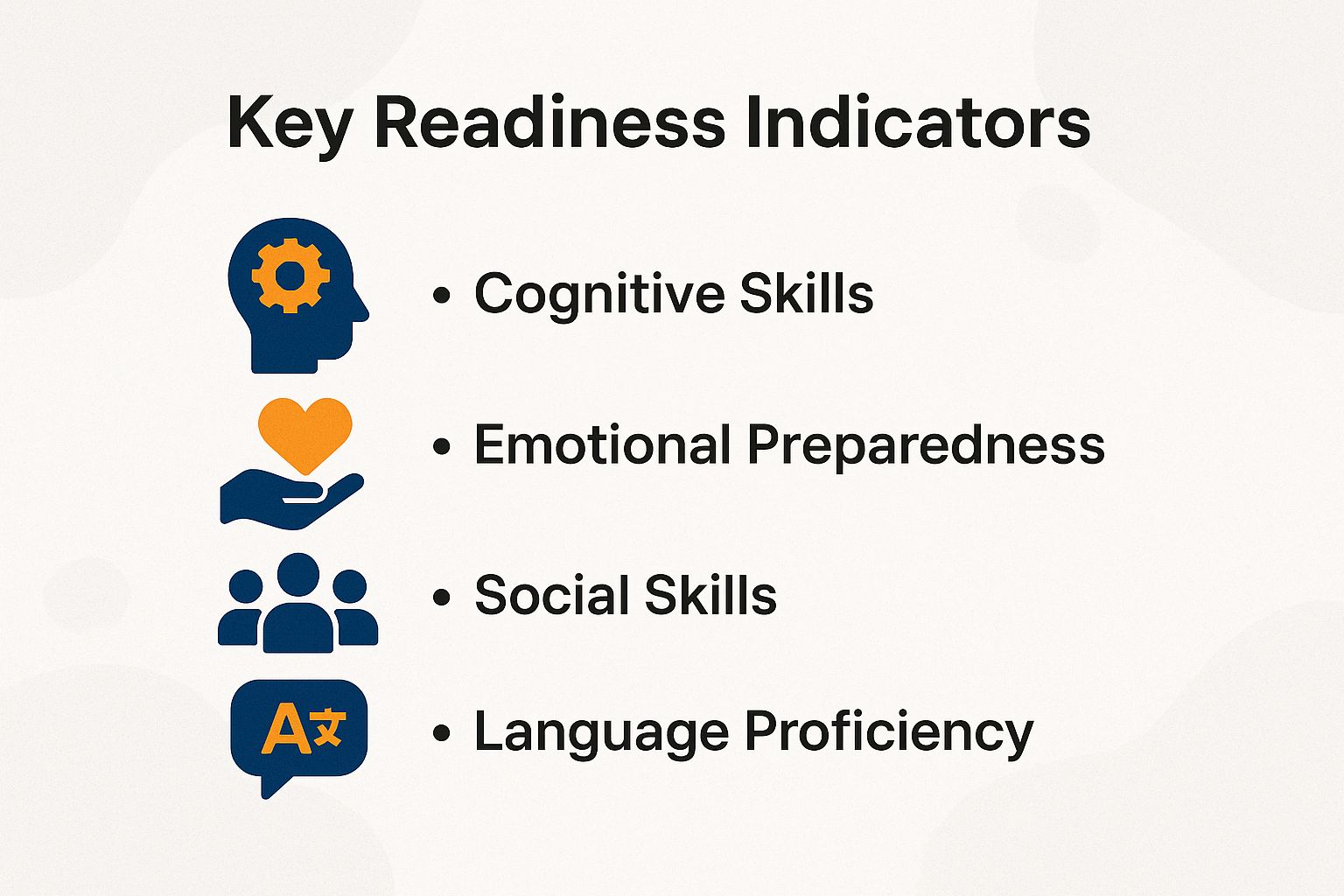
Identifying key readiness indicators can greatly assist parents in understanding their child’s preparedness for school. This assessment should focus on cognitive, emotional, and social skills, providing a comprehensive overview of the child’s readiness to embark on this important educational journey. If you’re wondering how readiness evaluations connect with entrance exams, understanding these indicators can offer crucial insights for future academic success.
Cognitive Skills
Cognitive skills encompass memory, attention span, and problem-solving abilities, all of which are essential for achieving academic success. Parents have the opportunity to enhance these skills at home through engaging and enjoyable activities.
For instance, memory games such as Simon Says or card-matching games can effectively boost recall and attention.
Incorporating puzzles into daily routines can help refine problem-solving abilities; consider choosing jigsaw puzzles or brain teasers that are appropriate for your child’s age. Establishing daily routines can also support attention span—setting aside specific times for uninterrupted reading or focused activities can be particularly beneficial.
Additionally, utilising cognitive training apps, such as Lumosity, can reinforce these skills in a fun and interactive way. These approaches not only make learning enjoyable but also contribute significantly to the development of cognitive skills.
Emotional Preparedness
Emotional preparedness is essential, as it enables children to manage their feelings and develop resilience, significantly influencing their school experience.
Parents can implement various strategies to enhance their children’s emotional readiness. For example, role-playing different scenarios allows children to practise their responses to various emotional situations, making them feel more equipped to handle challenges.
Furthermore, discussing feelings openly creates a safe space for children to express themselves. Regular family meetings can be a great way to encourage open sharing of emotions.
Additionally, encouraging your child to maintain a feelings journal can promote self-reflection and enhance communication about their emotions. These approaches not only support emotional understanding but also strengthen the bond between parent and child.
Social Skills
Developing social skills is essential for children, as it enables them to interact positively with both peers and adults, which is crucial for a successful school experience. Engaging children in group activities—such as team sports, art classes, or dance workshops—can prove to be incredibly beneficial.
For example, participating in a football league not only promotes teamwork but also teaches children how to communicate effectively with their teammates. Additionally, organising playdates with peers creates an intimate setting where they can practise social interactions.
Cooperative games, like board games that require players to work together, can also help children develop valuable negotiation skills. By incorporating these activities regularly, parents and educators can create a comfortable environment for children to enhance their social abilities.
Language Proficiency
Language proficiency encompasses the ability to understand and effectively use language, serving as a significant predictor of future academic success.
To enhance language skills, parents can engage in straightforward yet impactful activities. It is beneficial to allocate 20 minutes each day for reading together, selecting a variety of storybooks and informational texts to enrich vocabulary.
Encouraging storytelling is another effective approach; parents can invite their children to recount their day or craft imaginative tales, which promotes creative thinking and practical language use.
Additionally, utilising applications such as Endless Alphabet or Story Cubes can make the learning process interactive and enjoyable. These methods not only enhance language skills but also strengthen the bonding experience between parents and children.
Assessing Your Child’s Skills
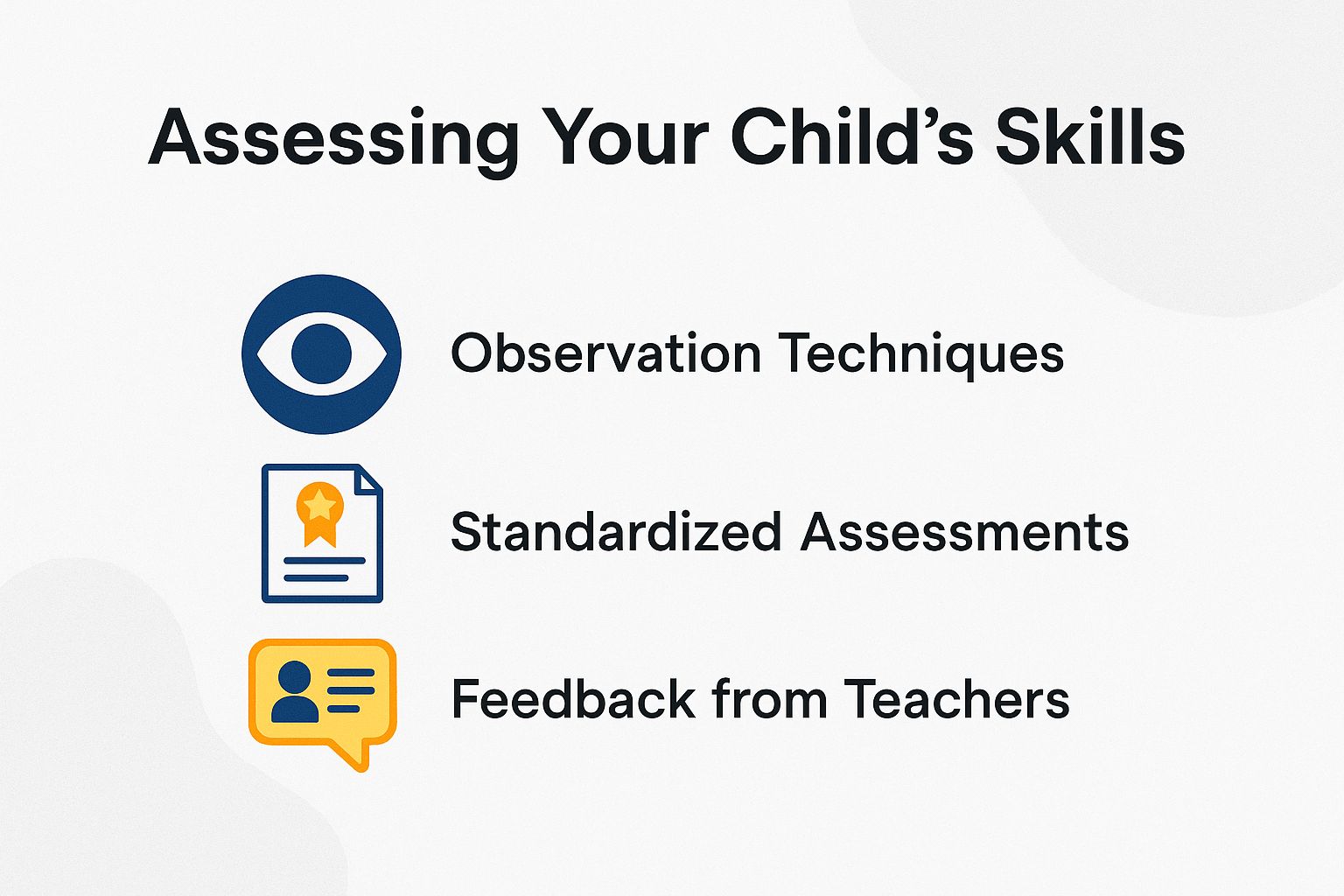
Regularly assessing a child’s skills allows parents to identify both their strengths and areas that may need improvement.
This proactive approach paves the way for effective preparation and development.
Observation Techniques
Effective observation techniques involve watching your child in various settings to accurately gauge their skills and behaviours. Begin by maintaining a daily journal of activities, noting the times and contexts to identify patterns in behaviour.
For example, observe how your child interacts during playdates or at school—do they seek out friends, or do they prefer to play alone?
Consider utilising smartphone applications like Evernote or Google Keep for convenient note-taking on the go. You can conduct specific observations by focusing on particular skills, such as sharing or communication, and employ checklists to track frequency and growth over time.
This methodical approach will enable you to build a comprehensive understanding of your child’s development.
Standardized Assessments
Standardised assessments offer a dependable way to gauge a child’s readiness and skill level in relation to their peers. To make the most of these assessments, it is essential to choose tests that align with educational standards and specific developmental objectives, such as the Woodcock-Johnson or the Stanford-Binet.
Before administering the assessments, take the time to familiarise yourself with the scoring system. Understanding what each score signifies about the child’s abilities is crucial. Once the testing is complete, review the results to pinpoint both strengths and areas that may require improvement.
For example, if a child demonstrates low scores in language skills, it may be beneficial to explore targeted interventions like phonics programmes or speech therapy.
It is also important to regularly reassess progress to track improvements and adjust strategies as needed. This ongoing evaluation ensures that the child’s educational journey remains on the right path.
Feedback from Teachers
Feedback from teachers is incredibly valuable, as it provides insights into a child’s skills, behaviour, and overall readiness for school. To make the most of this feedback, parents should aim to schedule regular meetings with teachers, ideally at the beginning of each term.
During these meetings, it is beneficial to ask specific questions, such as,
“What are my child’s strengths in mathematics?” or “How does my child interact with peers?”
This not only offers actionable insights but also shows a genuine commitment to the child’s education.
Additionally, utilising communication tools like ClassDojo or ParentSquare can help parents stay updated on daily progress and foster an ongoing dialogue with the teacher.
Preparing for the Exam
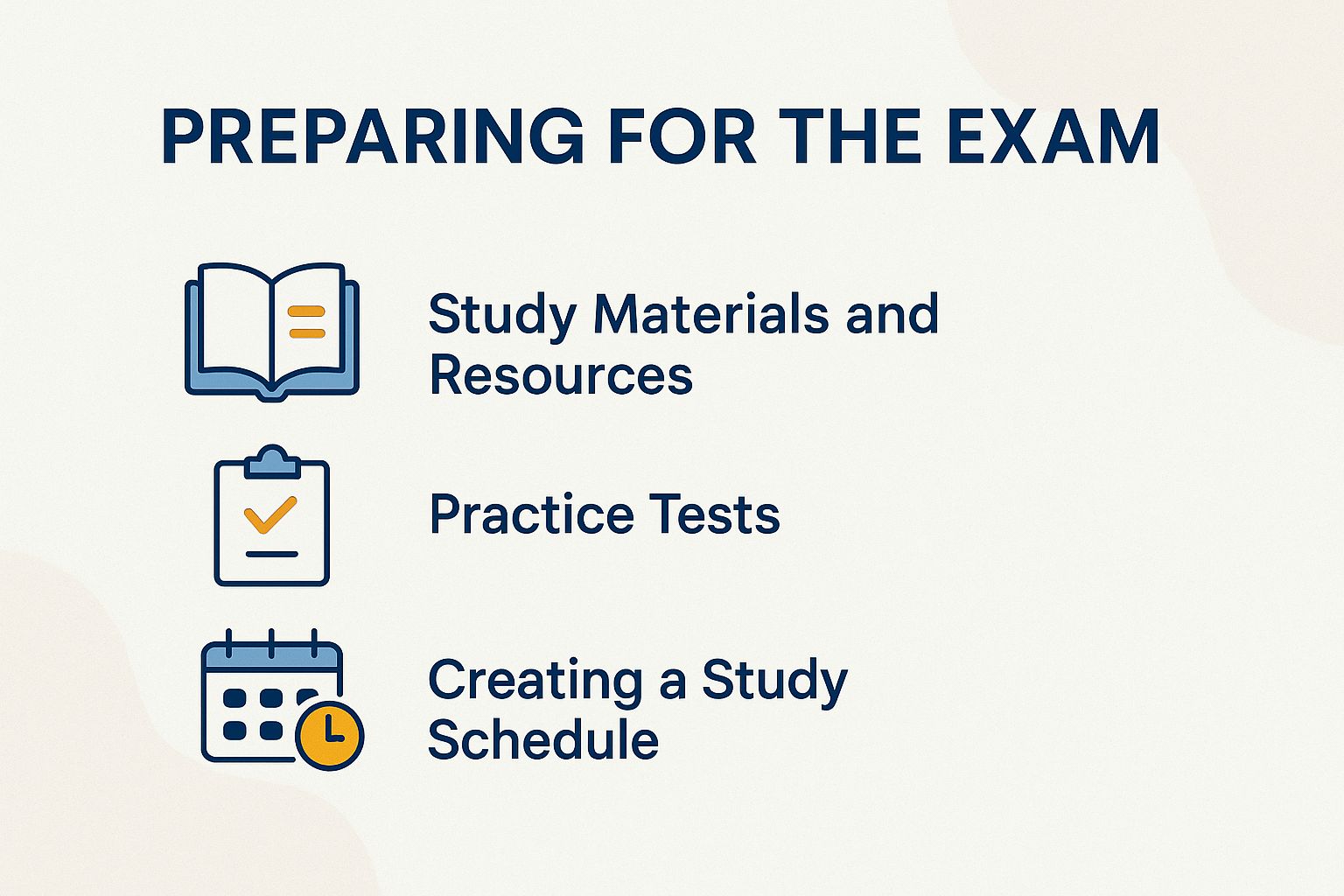
Preparing for the 4+ Exam involves using organised study materials and resources to enhance confidence and ensure thorough readiness.
It’s important to approach the process systematically, allowing for a comprehensive understanding and mastery of the content.
Study Materials and Resources
Utilising high-quality study materials, such as workbooks and online resources, can greatly improve a child’s readiness for exams. To effectively prepare for the 4+ Exam, it is advisable to consider the following materials:
- ‘CGP 4+ Practice Papers’ (£18) available at cgpbooks.co.uk, which provides excellent mock tests.
- ‘Bond 4-11 Maths and English’ (£11) from bond11.co.uk, which offers targeted skill practice.
- The ‘Schofield & Sims 4+ English’ workbook (£12), which focuses on comprehension and grammar.
Additionally, online platforms like ‘Khan Academy’ provide free, interactive tutorials that can be invaluable. By integrating these resources, one can foster a comprehensive approach to studying, accommodating various learning styles and ensuring thorough preparation.
Practice Tests
Administering practice tests is an effective way to help children become familiar with the examination format, ultimately reducing anxiety on the actual test day.
To locate quality practice tests, consider exploring websites like Khan Academy, which offers free resources tailored to various age levels and subjects. Additionally, purchasing books such as “The Official SAT Study Guide” or the “5 Steps to a 5” series can provide structured practice questions that are beneficial.
It is advisable to schedule these practice sessions twice a week, ensuring that each test is followed by a review of incorrect answers. This approach not only reinforces learning but also builds confidence and enhances understanding of the examination format over time.
Creating a Study Schedule
Establishing a structured study timetable is beneficial for consistent review and practice, ensuring that all areas of the exam are effectively addressed. It is advisable to begin by designating specific study days and allocating 1-2 hours for each session.
For example, one might choose to study on Mondays, Wednesdays, and Fridays for subjects such as maths and science, while reserving Tuesdays and Thursdays for language arts and social studies.
Incorporating short breaks of 5-10 minutes after each hour of study is essential for maintaining focus. Additionally, utilising tools like Google Calendar or Trello can help visually track one’s timetable and deadlines, making organisation easier.
It is also important to strike a balance between study time and leisure activities. Scheduling 30 minutes of play after a productive study block can help rejuvenate the mind and enhance overall effectiveness.
Managing Test Anxiety
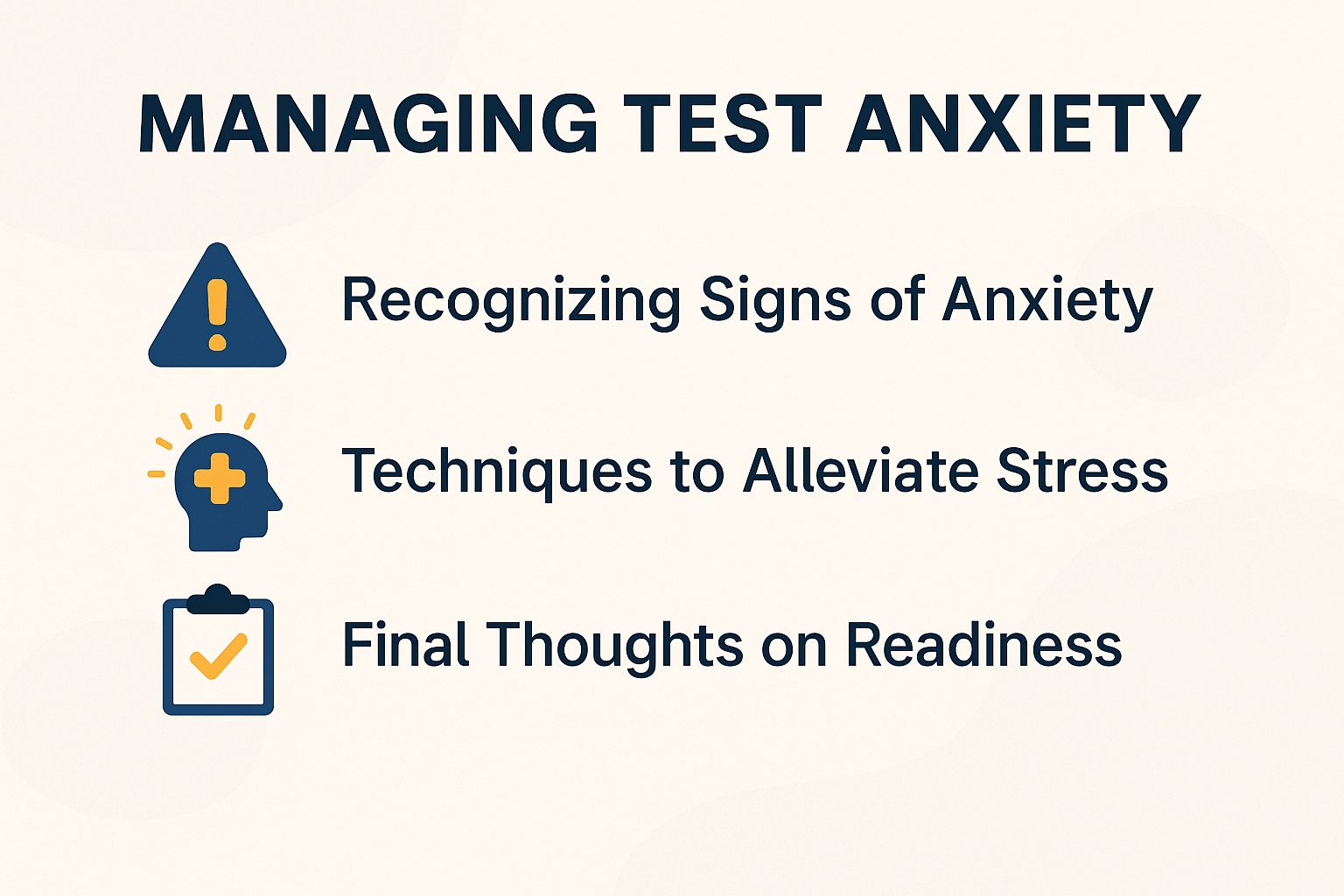
Effectively managing test anxiety is essential, as it can significantly influence a child’s performance.
When not addressed, this anxiety can lead to increased stress and a decline in confidence during examinations.
Recognising Signs of Anxiety
Recognising signs of anxiety, such as avoidance behaviour and physical symptoms, is essential for parents in taking proactive steps to support their child.
Common indicators of anxiety in children often include excessive worry about performance, irritability, and difficulty concentrating.
Parents can effectively monitor these behaviours by maintaining open lines of communication, encouraging their child to express their feelings, and being attentive to any changes in sleep patterns or appetite.
To address these concerns, techniques such as deep breathing exercises and mindfulness games can prove to be quite effective.
Additionally, establishing a consistent study routine that includes breaks can help alleviate anxiety as exams approach, fostering a sense of control and preparedness in the child.
Techniques to Alleviate Stress
Implementing stress relief techniques, such as mindfulness exercises and deep breathing, can greatly alleviate exam anxiety in children.
One effective approach is to introduce a brief mindfulness exercise into their daily routine. Begin with a simple 5-minute session where your child sits quietly and focuses on their breath. Encourage them to acknowledge any distracting thoughts that arise and gently redirect their attention back to their breathing.
Incorporating deep breathing practices is also beneficial. For example, the ‘4-7-8 method’ involves inhaling for 4 seconds, holding the breath for 7 seconds, and then exhaling for 8 seconds. This routine can serve as a grounding practice before study sessions or exams.
With consistent practice, these techniques can help build resilience and foster a sense of calm during high-pressure situations.
Final Thoughts on Readiness
Final reflections on readiness emphasise that it is a continuous journey of learning and support that goes beyond the 4+ Exam. To aid your child’s ongoing development, it is beneficial to regularly check in on their school experiences and interests.
Engaging in activities that spark curiosity can be quite enriching—consider visiting museums, reading together, or participating in local workshops.
Additionally, using educational apps such as Khan Academy or Duolingo can enhance their learning outside of school hours. Establishing a dedicated study space at home can further improve focus and comfort.
It is important to remember that maintaining open communication and prioritising a growth mindset will help cultivate resilience and foster a love of learning that extends far beyond the exam.
Frequently Asked Questions
Is My Child Ready for 4+ Exam?
The 4+ exam is designed for children who are ready to start their education journey and is a common entry point for many private and independent schools in the UK. If you are unsure if your child is ready for this exam, here are some frequently asked questions that can help you determine their readiness.
What is the 4+ exam?
The 4+ exam is an assessment test used by many private and independent schools in the UK to determine a child’s readiness for starting formal education. The test typically covers basic numeracy, literacy, and reasoning skills.
At what age should my child take the 4+ exam?
The 4+ exam is typically taken by children who are about to turn four years old by the start of the school year. This means that they should be around three years and six months old at the time of taking the exam.
What skills does my child need to have for the 4+ exam?
While there is no set curriculum for the 4+ exam, your child should have basic numeracy and literacy skills, as well as good reasoning and problem-solving abilities. They should also be able to sit still and concentrate for a reasonable amount of time.
How can I prepare my child for the 4+ exam?
You can prepare your child for the 4+ exam by exposing them to age-appropriate learning activities and materials, such as counting games, picture books, and puzzles. You can also consider enrolling them in a pre-school program that focuses on school readiness.
What happens if my child is not ready for the 4+ exam?
If your child is not ready for the 4+ exam, it is important not to push them to take it. Instead, you can consider enrolling them in a pre-school program and aim for the 5+ exam in the following year. Remember, every child develops at their own pace, and it is important to not put unnecessary pressure on them.



